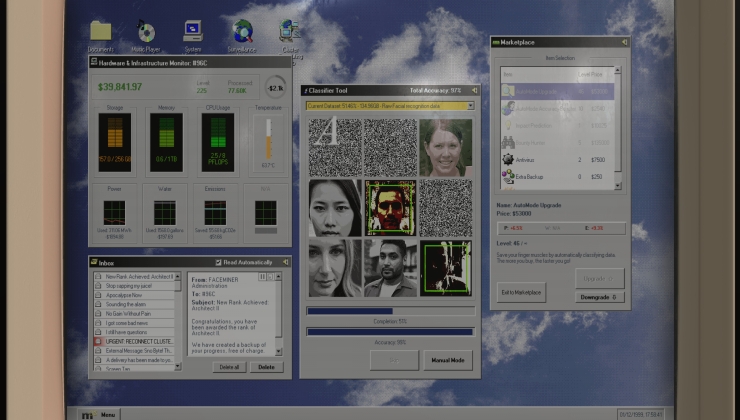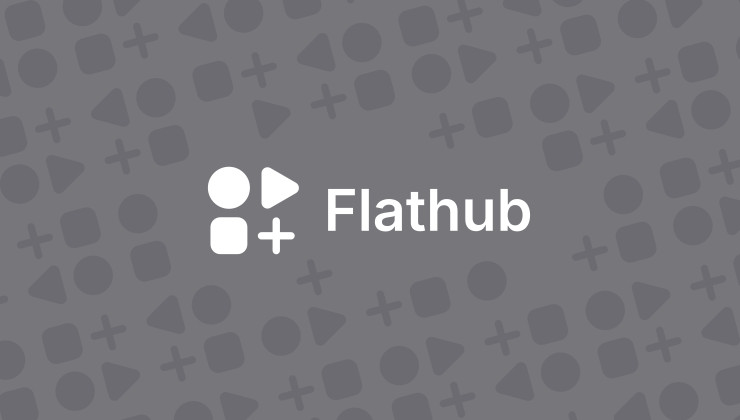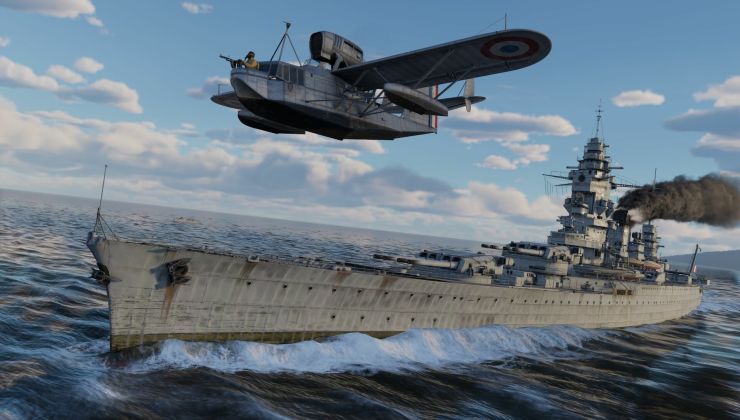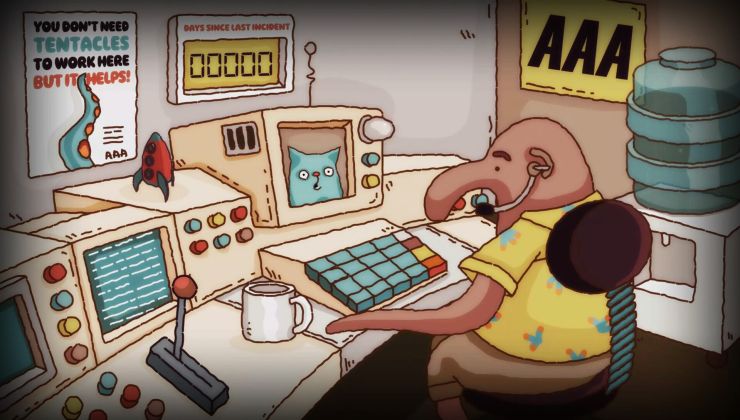Valve announced the latest version of the Steam Play Proton compatibility layer is out now with 6.3-5. Don't know what Steam Play and Proton are? Steam Play is a feature in the Linux Steam client allowing you to run compatibility layers like Proton, which enables you to play games supported on Windows. Be sure to check out our dedicated page for the full run-down. This follows on from the test release that went out earlier in June pulling in many fixes and improvements overall.
For this release these titles should see better video rendering:
- Bloodstained
- Deep Rock Galactic
- Metal Gear Solid V: The Phantom Pain
- Resident Evil 2 (2019)
- Resident Evil 3 (2020)
- Team Sonic Racing
The Windows versions of these titles should now be playable with Proton on Linux:
- Sid Meier's Civilization VI
- Crypt Stalker
- Dark Devotion
- Dorfromantic
- Far Cry
- Hard Reset
- Hogs of War
- Might & Magic: Clash of Heroes
- Pro Cycling Manager 2020
- Sang Froid - Tales of Werewolves
- Secret of Mana
- Trainz Railroad Simulator 2019
There's also improved controller support in the likes of Hades and other Unity titles plus fixes for CyberPunk 2077, Darksburg, Conan Exiles (and other Funcom launchers crashing) and a fix for missing audio in Project Cars 3.
You will also see improved GPU device selection (for those with more than one GPU), an update to the Direct3D 9/10/11 to Vulkan layer DXVK to version 1.9 and also the VKD3D-Proton layer for translating Direct3D 12 to Vulkan had some of the latest work on it pulled in.
See the changelog for more. Updates come through the Steam client like any other game or application, just ensure you have Proton 6.3 installed.
Update - 26/06/21: Proton Experimental also saw an update. It pulled in the updates from 6.3-5, plus it also mentions "support for Nvidia DLSS" and that "Resident Evil Village, Forza Horizon 4, and Anno 1404 - History Edition are playable".
It's good to see Proton going from strength to strength, but I still play mostly native Linux; both as a matter of principle and because there are so many good titles available.I've mentioned my sliding scale before, but I'll quickly run through it again.
A game that isn't native and doesn't work in Proton is worth nothing (obviously).
A game that isn't native and accidentally works in Proton is worth maybe 10%. It could stop working at any time.
A game that isn't native but deliberately works in Proton (so the developer tests in Proton and fixes their game if it stops working) is worth something like 50%.
A native game is worth full price.
The games that I buy (or wishlist) all count as Linux sales, so the dev gets feedback that there's a market. The sliding scale incentivises better support from the dev. More tux more bucks.
I'll also add that I've already got more games than I've got time to play, and a relatively long wishlist, so the non-native games also get pretty low priority.
Last edited by CatKiller on 25 Jun 2021 at 8:28 pm UTC
Resident Evil 2 (2019)I still can't believe how well optimize CAPCOM made this game, compared to the high dpi mouse bug Re6 had for me, it doesn't even look like it was made by the same company.
Now if they could get rid of their fetish for using Media Foundation components them I would be glad
A game that isn't native but deliberately works in Proton (so the developer tests in Proton and fixes their game if it stops working) is worth something like 50%.
I'm honestly curious, mostly because of how I often see people claim that's all we need/don't need native ports, are there any devs that have actually done that? As in actually support the game through Proton and bill Linux as officially supported, not them just saying to give it a try or that people got it working.
No Man's Sky is the well-known one: they've had specific things in their changelog about fixing things for the game in Proton.A game that isn't native but deliberately works in Proton (so the developer tests in Proton and fixes their game if it stops working) is worth something like 50%.
I'm honestly curious, mostly because of how I often see people claim that's all we need/don't need native ports, are there any devs that have actually done that? As in actually support the game through Proton and bill Linux as officially supported, not them just saying to give it a try or that people got it working.
Every game, if you look at their Steam forum, will have a thread of people asking for Linux support. If a dev responds there you can get an idea about their familiarity and testing regime. Some just wash their hands of the whole thing, but others are more supportive.
Some devs will chime in on Proton's github, or there'll be feedback there from another channel.
Having devs engaged like that, and proactively looking for solutions even if they aren't quite ready to make the step to fully supporting a native build, is still worthwhile, I think. Not full price worthwhile, to me, but significant.
The only mechanism currently for having front page Store support for something running through Proton is to have it whitelisted, which means that Valve's taken over support instead of the dev. Testing in Proton and having a not-entirely-supported-but-tested Linux build available don't show on the Store page. Perhaps we'll get another category if Valve release their rumoured handheld. Unfortunately, the "we just hit the export to Linux button but don't actually test anything at all" does show on the Store page, and those aren't games that people should buy.
A game that isn't native and doesn't work in Proton is worth nothing (obviously).What about a native game that works better in Proton?
A game that isn't native and accidentally works in Proton is worth maybe 10%. It could stop working at any time.
A game that isn't native but deliberately works in Proton (so the developer tests in Proton and fixes their game if it stops working) is worth something like 50%.
A native game is worth full price.
Last edited by axredneck on 26 Jun 2021 at 9:35 pm UTC
What about a native game that works better in Proton?What about it? Assuming it's not the fraudulent case, where they sell you a Linux game but don't actually test or support it (which you shouldn't buy), but a standard fully-tested and fully-supported native product (which is worth full price) then your choosing to run it in Proton is no one else's business.
What one needs, as the buyer of a product, is to know that the supplier is going to try their hardest to make sure that the product is fit for purpose, and to have recourse if it isn't. If a dev never tests on the platform you're using they can't do the former, and if they can shrug off complaints because your platform is unsupported you don't get the latter. Which makes their product not worth as much.
Last edited by CatKiller on 26 Jun 2021 at 10:50 pm UTC
* Place MP3's in
compatdata/271590/pfx/drive_c/users/steamuser/My Documents/Rockstar Games/GTA V/User Music* Seems to crash if you put in more than 600mb worth of music
A game that isn't native and accidentally works in Proton is worth maybe 10%. It could stop working at any time.
I also believe that buy a "new" game because it works well on proton is nuts. It works today, it's easy anti cheat tomorrow. Eventually though new games become old games. Old games -> no more development cycles. No dev cycles -> no (or close to null) risk of proton breaking.
For AAA games often it's just a matter of waiting like 1 year or so until the project goes support mode. With their obsene day 1 prices, waiting it's not a bad idea anyway.
Yep. By the time a game gets to 90% off, devs are unlikely to still be making breaking changes.A game that isn't native and accidentally works in Proton is worth maybe 10%. It could stop working at any time.
I also believe that buy a "new" game because it works well on proton is nuts. It works today, it's easy anti cheat tomorrow. Eventually though new games become old games. Old games -> no more development cycles. No dev cycles -> no (or close to null) risk of proton breaking.











 How to set, change and reset your SteamOS / Steam Deck desktop sudo password
How to set, change and reset your SteamOS / Steam Deck desktop sudo password How to set up Decky Loader on Steam Deck / SteamOS for easy plugins
How to set up Decky Loader on Steam Deck / SteamOS for easy plugins
See more from me